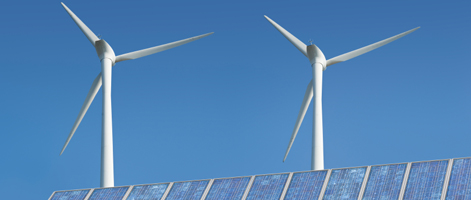Smart Meters (Dual-Fuel) Power & Gas
The Government Department of Energy and Climate Change (DECC) has put a timescale for all UK homes to have a Smart Meter installed by the end of 2019, therefore there's a land-grab opportunity for qualified trades people who are able to install Smart Meters – which are there as an alternative to replace the current Electricity & Gas meters; the aim of Smart Meters is for them to display the combination of both energy sources and in-turn reduce energy demand / household utility bills.
The Government has placed this deadline for all homes and businesses, in both the commercial & public sector to have a Smart or Advanced Energy Meter installed by 2019. The roll-out will help the UK in meeting the low-carbon emissions target set by the World Committee for Climate Change. One of the key governmental focus issues over the next few years, are for countries to all pull together in ensuring sustainable energy for the future.
Smart Meters enable consumers to keep track of their energy consumption, ultimately reducing a households utility bill, saving money and reducing emissions. Another plus point is; no more estimated bills – the Smart Meter will be able to link to the energy provider and inform them of real-time usage & save on meter readers to visit each property!
The impact of achieving the Smart Metering requirements, in-line with the Government's deadlines with regard to staffing numbers is difficult to estimate but it's currently believed the staff involved in the national roll-out will be made-up of a mixture of current energy employees and most importantly trained & skilled installation sub-contractors!
The Department of Energy and Climate Change (DECC) plan is to have smart meters installed in every UK home by the end of 2019 – this needs to be backed-up by, enough trained installation, technical and support staff. Much research has / is being taken place to make sure this goal is achievable; specific Government research bodies have spoken with the leading energy providers & the Institution of Engineering and Technology (IET) - to understand what recruitment and training challenges are needed to achieve this change-over goal.
The feedback research is indicating energy companies are preparing for the achievable task but this also depends on enough trained installers to the technical requirements needed to safely install both domestic (household) & commercial (business) Smart Meters. The technical leap required from the current meter provision to the introduction of smart meters is quite skilled and currently, there is a shortage of skilled trades people to carry-out the installation safety, this needs to be addressed.
What has delayed this installation training was a definite understand of the technical specifications and Smart Meter technology, not available until the end of 2012. A few of UK’s the leading energy companies have run regional trials with a small sample of customers in 2012, to assess the work involved for national roll-out. The ideal trades person to install these Smart Meters, will be already practising & wanting to up-skill / top-up to a Smart Metering Accreditation; to be a Smart Meter installer the person needs to have dual-fuel technical skills – the pathways also lead to the City & Guilds Gas Safe registration. The Smart Meter range of installation qualifications have been developed and are accredited by both the gas and electricity regulatory bodies. Also the Energy & Utility Skills (EU Skills), whose is funded by the National Skills Academy for Power (NSAP), is developing an Intermediate dual-fuel Level 2 Apprenticeship to support the government's smart meter strategy.
The Level 2 qualification will suit individuals who are already skilled trades people or have recently started a career / apprenticeship within installing and maintaining Smart Meters. There are three qualification levels available within the Level 2 qualification:
- Diploma in Smart Metering - Power
- Diploma in Smart Metering - Gas
- Diploma in Smart Metering – Dual-Fuel
Each level comprises of ten mandatory similar units, which are taken from a wider list of units, which including:
- Safety within the both the Energy & Utilities sectors
- A technical understanding of the energy & Utilities sectors
- Being able to communicate the key information of both sectors
- The secure installation of Smart Meters & setting-up of the commission communication systems
- Understanding the principles of low pressure natural gas Smart Meters
- Low pressure tightness testing and direct purging
- The last registration date of: 31/03/2014
- Accreditation no: 600/1270/5
- Type: QCF
- Credits: 37
- Guided learning hours: 148 - 148
- The last certification date is: 31/03/2016
- The last registration date of: 31/03/2014
- Accreditation no: 600/1271/7
- Type: QCF
- Credits: 41
- Guided learning hours: 262 - 262
- The last certification date is: 31/03/2016
- The last registration date of: 31/03/2014
- Accreditation no: 600/1282/1
- Type: QCF
- Credits: 63
- Guided learning hours: 322 - 322
- The last certification date is: 31/03/2016
To find out more information:
Please fill the form on your right side, one of our national adviser will call you to discuss.
Please Note; we do not share your contact details with any other organisation







